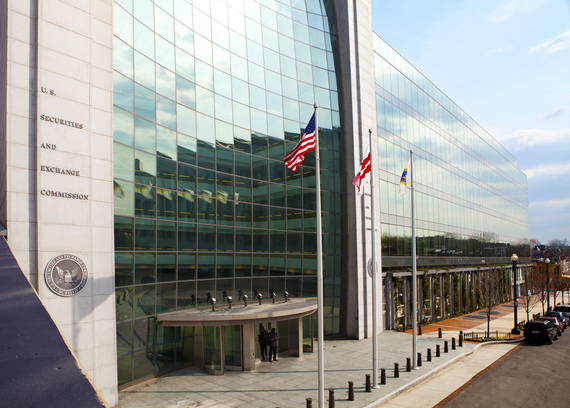Because the management of sustainability issues influences corporate success, the information that is "material" to investors is rapidly changing, much like the world around it. And as a result, corporate disclosure must evolve.
The SEC has acknowledged this need in a recent concept release on disclosure reform, which includes 11 pages of discussion of sustainability disclosure and poses eight questions for feedback. This is an important moment in history -- it's an opportunity to make sustainability reporting meet the needs of both companies and investors. Here are five current problems with sustainability disclosure that disclosure reform can help solve.
1. Sustainability reports don't meet investor needs.
Standalone sustainability (or CSR) reports are designed to provide a broad overview of sustainability performance to many stakeholders, including employees, customers, vendors, and community organizations. As such, these reports contain large amounts of immaterial information, data that is not standardized, and data that is not audited or reliable. Importantly, corporations produce voluntary reports because they can present a positively biased view of their situation, which is appealing from a marketing perspective. 90 percent of known negative events are not addressed by companies in their CSR reports. Investors need a true and fair representation of performance in order to understand and price risk.
2. Sustainability issues are already discussed in regulatory filings, but rarely in a useful way.
SASB research shows that nearly three-quarters of SASB disclosure topics are already addressed by issuers in their SEC filings. However, more than 40 percent of all disclosures on sustainability topics contain boilerplate language, while only about 15 percent of such disclosures use metrics. Even then, companies use different metrics and/or calculation methods, which hinders comparability. In order to evaluate performance of companies within an industry, analysts need full data sets of comparable metrics. Research shows that more detailed disclosures enhance analysts' understanding and impact investors' decision making.
3. Current reporting lacks an industry lens.
Current sustainability disclosure -- both in sustainability reports and SEC filings -- lacks an industry lens. Sustainability issues impact financial performance in specific ways that vary by topic and industry. As such, investors need guidance on which sustainability issues are material to which industries, and they need industry-specific metrics by which to evaluate and compare performance. For example, what analysts need to know about climate risk is different from industry to industry. For apparel companies, analysts want to know the ability to source cotton, a crop that is vulnerable to shifting weather patterns. For commercial banks, analysts want to know about financed emissions -- loans to Oil and Gas, and Coal companies. For automobile companies, analysts want to evaluate progress on developing alternative-fuel vehicles. In health care delivery, changing disease migration patterns and business resilience in the face of increasing storm events are material for investors. Analysts cover industries, not issues. An industry lens is essential for understanding performance on material factors and pricing risk.
4. The practice of selective disclosure through ESG questionnaires is a market dysfunction.
Large-cap companies receive hundreds of information requests each year, leading to "questionnaire fatigue" and information asymmetry. It's impossible to discern material from immaterial information. Investors need standardized sustainability disclosure that is integrated into mandatory financial filings, so that the information is reliable, controlled, and all investors have access to material information at the same time, without having to request it via a questionnaire.
5. The SEC faces enforcement challenges.
Regulation S-K already requires the disclosure of material information. While the SEC uses US GAAP to help enforce the disclosure of material financial information, until now, there have been no accounting standards for the disclosure of material sustainability information. Without accounting standards that identify what sustainability factors are likely to be material for each industry -- and what metrics to use to account for performance -- the SEC has lacked the standards it needs to effectively enforce Regulation S-K.
As demonstrated, within the current sustainability reporting regime investors don't have the information they need to evaluate corporate performance in today's world. And, companies drain resources into reporting that isn't providing value to investors. How must sustainability disclosure evolve to meet investor and corporate needs?
The capital markets need sustainability accounting standards that are created by the market, specific to industry, and compatible with U.S. securities law. Sustainability accounting standards will enable comparable, consistent data that helps investors make decisions. And, they'll help companies identify, measure and manage the sustainability issues most likely to impact financial disclosure. The Sustainability Accounting Standards Board (SASB) standards, available for 79 industries, are designed to help companies disclose material information in SEC filings in a manner that's decision-useful to investors. The standards were created by thousands of stakeholders -- both investors and corporate professionals -- who agreed on which topics are most likely to be material for each industry.
The time is now. Let's stop wasting corporate resources on reporting that doesn't meet market needs. Let's eliminate selective disclosure via questionnaires. Let's reduce boilerplate and replace it with metrics. Let's agree on a market standard that helps our capital markets remain the most liquid and resilient in the world. Through July 21, write to the SEC and make your voice heard. Together, we can help disclosure evolve to meet the needs of both companies and investors in the 21st century.
Dr. Jean Rogers is Founder and CEO of the Sustainability Accounting Standards Board. Paul Druckman is CEO of the International Integrated Reporting Council.

